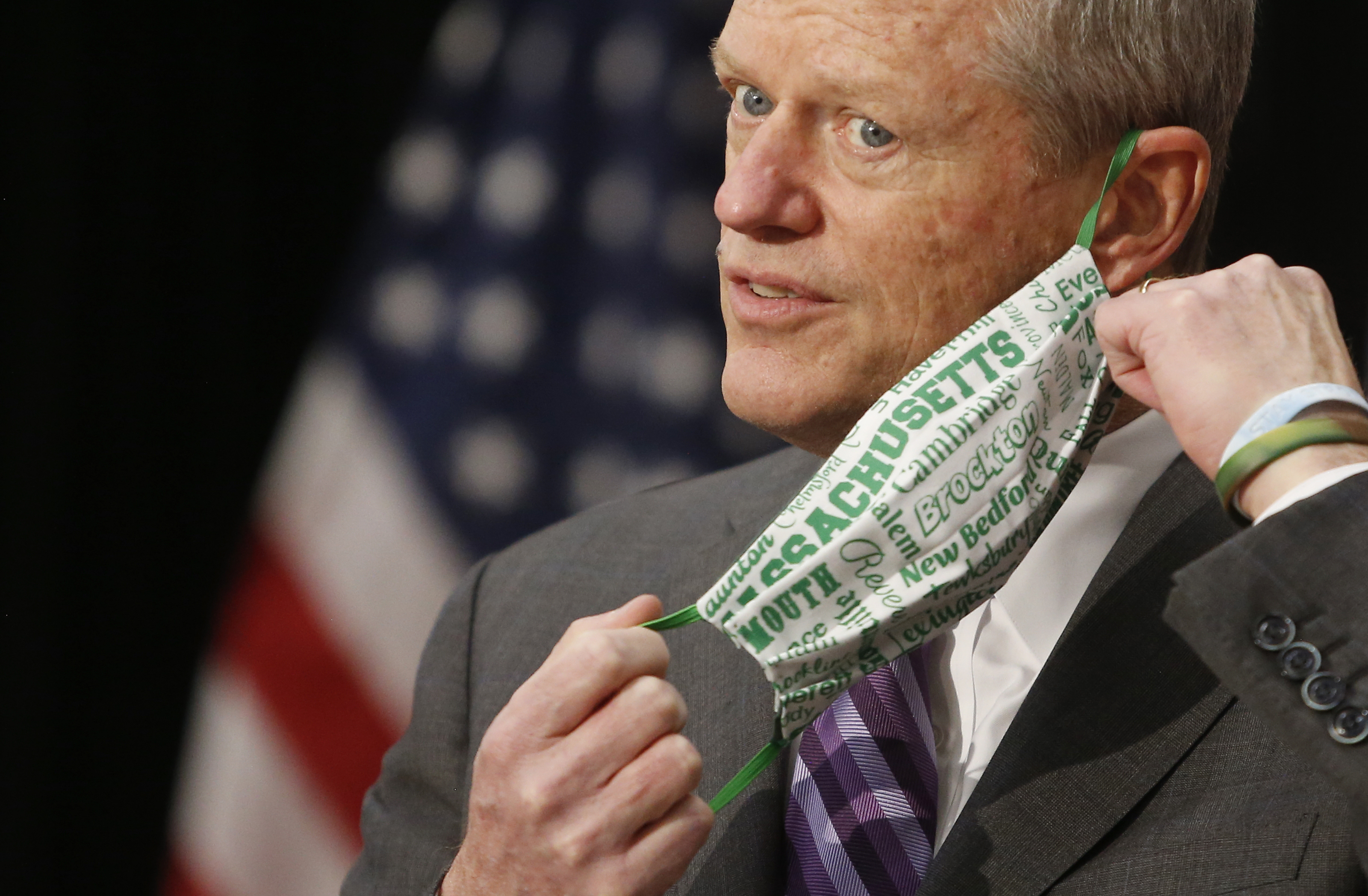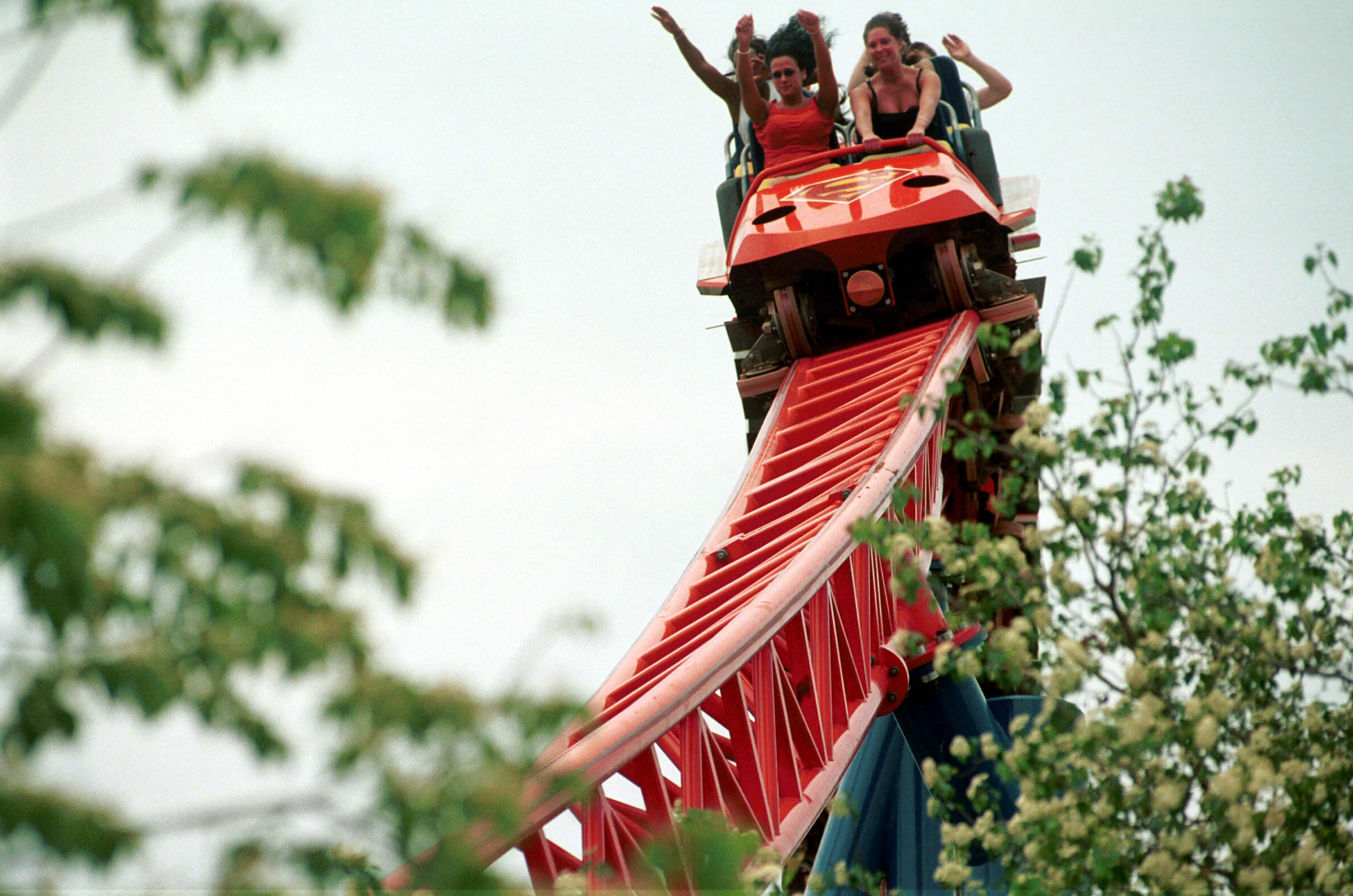Massachusetts is poised to take additional steps toward normalcy under Gov. Charlie Baker's latest COVID reopening timeline.
Baker's suite of short- and longer-term updates to the state's reopening plan, released Tuesday, positions Massachusetts to fully reopen by August. It starts with the state's outdoor mask mandate expiring Friday, followed by other COVID-related business restrictions that relax next month.
WATCH ANYTIME FOR FREE
Stream NBC10 Boston news for free, 24/7, wherever you are. |
Starting Friday, masks will no longer be required outdoors as long as the person can maintain social distancing. Regular service can begin at bars next month, when capacity limits will expand for gatherings and more, and the governor gave an expected end date for all COVID-related business regulations.
Baker credited the changes to the improving public health metrics in Massachusetts. But he stressed that "face coverings will remain required in all indoor public places," and in some other situations, like at large sports venues.
Get updates on what's happening in Boston to your inbox. Sign up for our News Headlines newsletter.
The state's new mask policy came as the U.S. Centers for Disease Control and Prevention unveiled new guidance on outdoor mask-wearing for unvaccinated people Tuesday.
Starting on May 10, amusement parks and water parks will be allowed to reopen at 50% capacity. Arenas and ballparks, which have been at 12% capacity, will move to 25% capacity. Outdoor sports events like road races and tournaments can go ahead. Indoor singing will also be allowed, though with distancing requirements.
Then on May 29, gathering limits will go up to 200 people indoors and 250 outdoors. Bars, beer gardens and wineries can also reopen without having to serve food, but customers have to be seated and spaced out six feet apart, and dance floors still won't be allowed. Street festivals and parades can go ahead at 50% capacity, if plans are approved by local boards of health. And restaurants may be allowed to increase table party size to 10 and start serving alcohol without food.
By Aug. 1, if all goes well, all other businesses will be allowed to reopen or operate without capacity limitations, clearing the way for nightclubs, indoor water parks and more.
Many business owners said they are looking forward to the relief - but experts warn we should proceed with caution.
Dr. Ashish Jha, the dean of the Brown University School of Public Health, said he's not advocating for things to be shut down for longer, but he questioned how fast Massachusetts is moving.
“The idea of 200 people gathering indoors when 40 percent of adults and half of our population isn’t vaccinated -- that’s a pretty high risk event," Jha said.
Meanwhile, the state is requiring all high school students return to classrooms full-time by May 17. Commissioner of Elementary and Secondary Education Jeffrey C. Riley made the announcement Tuesday.
"Every day a child is in a classroom is crucial. In addition to academic instruction and support, we know when students are in school, they have the opportunity to learn important social and emotional skills and have access to healthy meals as well as mental health and other support services," he said in a statement.
The move gives high schoolers about a month of full-time in-person learning, unless their district brought them back earlier.
Boston is following Massachusetts' lead in reopening from COVID regulations, but with a three-week delay on many of the changes, Mayor Kim Janey announced Tuesday.



